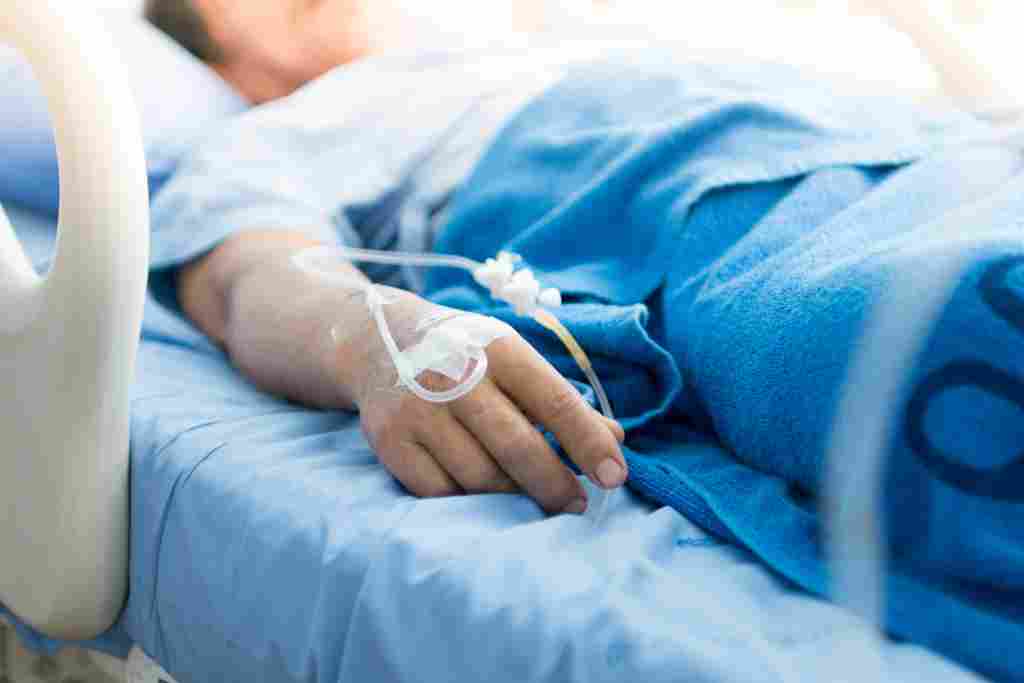Updated: An observational study on the use of hydroxychloroquinehydroxychloroquine hy·droxy·chlor·o·quine | \ -ˈklōr-ə-ˌkwēn, -kwin : a drug derived from quinoline that is administered orally in the form of its sulfate C18H26ClN3O·H2SO4 to treat malaria, rheumatoid arthritis, and lupus erythematosus found that the anti-malarial drug didn’t appear to help hospitalized patients with Covid-19COVID-19 \ ˈkō-vid-nīn-ˈtēn : a mild to severe respiratory illness that is caused by a coronavirus (Severe acute respiratory syndrome coronavirus 2 of the genus Betacoronavirus), is transmitted chiefly by contact with infectious material (such as respiratory droplets), and is characterized especially by fever, cough, and shortness of breath and may progress to pneumonia and respiratory failure. . Click here to see the content below.
Doctors can now use the malariamalaria ma·lar·ia | \ mə-ˈler-ē-ə : a human disease that is caused by sporozoan parasites (genus Plasmodium) in the red blood cells, is transmitted by the bite of anopheline mosquitoes, and is characterized by periodic attacks of chills and fever drugs PlaquenilPlaquenil Plaque·nil | \ ˈplak-ə-ˌnil —used for a preparation of the sulfate of hydroxychloroquine (hydroxychloroquine) and Aralen (chloroquine) to treat coronaviruscoronavirus co·ro·na·vi·rus : any of a family (Coronaviridae) of single-stranded RNA viruses that have a lipid envelope studded with club-shaped projections, infect birds and many mammals including humans, and include the causative agents of MERS, SARS, and COVID-19. The US Food and Drug Administration recently approved these drugs for the emergency treatment of coronavirus disease (COVID-19).
There have been early indications that these drugs may be effective in treating or preventing Covid-19, however they have not undergone extensive clinical trials. There have been growing concerns about the impact chloroquine (CQ) and the closely related hydroxychloroquine (HCQ) can have specifically on the heart.
Chloroquine was first used as prophylaxis and treatment for malaria. Hydroxychloroquine is a more soluble and less toxic metabolite of chloroquine and considered to be safer. HCQ is being prescribed in conjunction with azithromycinazithromycin azith·ro·my·cin | \ ə-ˌzith-rō-ˈmīs-ᵊn : a semisynthetic macrolide antibiotic C38H72N2O12 that is derived from erythromycin and is used especially as an antibacterial agent and ceftriaxone (a cephalosporin antibiotic) for patients who are severely ill with COVID-19.
Hydroxychloroquine is used in the treatment of autoimmune diseases such as Rheumatoid arthritis and Lupus.
NIH Announces HCQ Clinical Research Study of 500 Hospitalized Adults
The National Institutes of Health announced it was launching a clinical research trial to evaluate the safety and efficacy of treating COVID-19 with HCQ, an anti-malarial drug approved in the 1950s. The study is being run out of the Prevention and Early Treatment of Acute Lung Injury (PETAL) Clinical Trials Network of the National Heart, Lung, and Blood Institute (NHLBI).
Vanderbilt University Medical Center in Nashville, one of dozens of centers in the PETAL network, has begun enrolling participants in the blinded, placebo-controlled clinical trial. The trial aims to enroll more than 500 adults who are currently hospitalized with COVID-19 or in an emergency department with anticipated hospitalization.
The FDA’s order allows the use of hydroxychloroquine for treatment of teen and adult coronavirus patients outside of clinical trials.
Study of Hydroxychloroquine Disputes Benefits of Treatment for COVID-19
An observational study on hydroxychloroquine found that the anti-malarial drug didn’t appear to help hospitalized patients with Covid-19. Published May 7 in the New England Journal of Medicine, the study, funded by the National Institutes of Health was conducted by researchers at New York-Presbyterian Hospital and Columbia University Irving Medical Center in New York City. The study looked at 1,376 patients who showed up at the emergency room with symptoms of coronavirus. 60% or 811 of patients who received the drug within 48 hours were found, on average, to be more severely ill than those who didn’t receive the drug.
The findings didn’t find any potential benefit, in terms of the need for mechanical ventilation or survival of COVID-19, and researchers said a rigorous, randomized clinical trial is needed. The new findings come two weeks after the Food and Drug Administration warned consumers against chloroquine or hydroxychloroquine to treat Covid-19 outside a hospital or formal clinical trial setting.


No comments yet. Be the first one to leave a thought.